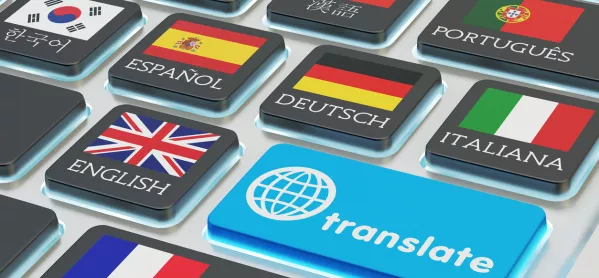Education secretary Damian Hinds has called on more pupils to study languages and computer science to prepare them for a post-Brexit future.
He repeated his call for more young people to develop the “languages of mankind and the languages of machines for the world of tomorrow.”
In an exclusive Tes interview, Mr Hinds highlighted promoting these subjects among his priorities if he remains in post as education secretary under a new cabinet.
Languages: Schools warn of Brexit effect
Quick read: Computing teaching ‘patchy’
Hinds: I want to stay and finish the job
He said: “With all the changes we have got coming in the world of tomorrow with our place in the world and in a post-Brexit world, its more important than ever that we have a really global outlook, are really plugged into the rest of the world and in understanding other cultures.
“I talk about it being crucial to develop the languages of mankind and the languages of machines for the world of tomorrow.”
He added: “I want more students studying languages and studying other cultures and I want more kids doing computer science.
“It is not difficult to engage young people in technology but I want us to be a country not just of technology consumers but also technology producers so there is a lot to do there.”
His comments follow a warning that tougher new GCSEs and A levels are discouraging lower-achieving pupils from learning languages.
This finding came from research among 1,600 language teachers carried out by the British Council.
The council also warned that nearly half of state schools in England say Brexit is having a negative effect on the learning of modern foreign languages.
There have also been concerns about the numbers of pupils studying computing.
A report earlier this year found that the percentage of students sitting GCSE computer science increased, but only slightly from 12.1 per cent in 2017 to 12.4 per cent of all GCSE students in 2018.
However, it said the overall number of hours spent teaching computing has fallen over five years from 2012 to 2017
The University of Roehampton report said the sharpest drop was at key stage 4, where 31,000 fewer hours were taught per week in 2017, a drop of 47 per cent over the five years.
It warned that if pupils do not choose GCSE computer science it is unlikely they will be getting any computing education beyond the age of 14.
It also highlighted the impact of the removal of the European Computer Driving Licence from performance league tables, which it said led to the number of entries in vocational computing qualifications at level 2 plummeting from 154,796 in 2017 to just over 20,000 last year.





